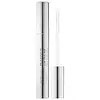What's inside
What's inside
 Key Ingredients
Key Ingredients

 Benefits
Benefits

 Concerns
Concerns

 Ingredients Side-by-side
Ingredients Side-by-side

Ethylhexyl Palmitate
EmollientDiisostearyl Malate
EmollientTridecyl Trimellitate
EmollientPolyethylene
AbrasiveHydrogenated Polyisobutene
EmollientPolyisobutene
Isopropyl Myristate
EmollientBeeswax
Emulsion StabilisingMicrocrystalline Wax
Emulsion StabilisingEuphorbia Cerifera Cera
AstringentTocopheryl Acetate
AntioxidantEthylhexylglycerin
Skin Conditioning1,2-Hexanediol
Skin ConditioningCaprylyl Glycol
EmollientArnebia Euchroma Root Extract
AntimicrobialSimmondsia Chinensis Seed Oil
EmollientButyrospermum Parkii Butter
Skin ConditioningCeramide NP
Skin ConditioningNiacinamide
SmoothingCaprylic/Capric Glycerides
EmollientRicinus Communis Seed Oil
MaskingSodium Hyaluronate
HumectantCamellia Japonica Flower Extract
EmollientCentella Asiatica Extract
CleansingHydrogenated Castor Oil
EmollientEthylhexyl Palmitate, Diisostearyl Malate, Tridecyl Trimellitate, Polyethylene, Hydrogenated Polyisobutene, Polyisobutene, Isopropyl Myristate, Beeswax, Microcrystalline Wax, Euphorbia Cerifera Cera, Tocopheryl Acetate, Ethylhexylglycerin, 1,2-Hexanediol, Caprylyl Glycol, Arnebia Euchroma Root Extract, Simmondsia Chinensis Seed Oil, Butyrospermum Parkii Butter, Ceramide NP, Niacinamide, Caprylic/Capric Glycerides, Ricinus Communis Seed Oil, Sodium Hyaluronate, Camellia Japonica Flower Extract, Centella Asiatica Extract, Hydrogenated Castor Oil
Homosalate 15%
Skin ConditioningEthylhexyl Methoxycinnamate 7.5%
UV AbsorberEthylhexyl Salicylate 5%
UV AbsorberButyl Methoxydibenzoylmethane 3%
UV AbsorberHyaluronic Acid
HumectantNiacin
SmoothingPantothenic Acid
Skin ConditioningCeramide AP
Skin ConditioningHydrogenated Polyisobutene
EmollientEthylene/Propylene/Styrene Copolymer
Butylene/Ethylene/Styrene Copolymer
Octocrylene
UV AbsorberBenzyl Nicotinate
Skin ConditioningGlycerin
HumectantCetearyl Ethylhexanoate
EmollientSorbitan Isostearate
EmulsifyingPortulaca Pilosa Extract
Skin ConditioningSucrose Cocoate
EmulsifyingPalmitoyl Tripeptide-38
Skin ConditioningSodium Hyaluronate
HumectantMenthone Glycerin Acetal
RefreshingStevia Rebaudiana Leaf/Stem Powder
Skin ConditioningNiacinamide
SmoothingTocopheryl Acetate
AntioxidantHydrolyzed Sodium Hyaluronate
Skin ConditioningGlutathione
Ergothioneine
AntioxidantCeramide NP
Skin ConditioningCeramide EOP
Skin ConditioningPhytosphingosine
Skin ConditioningCholesterol
EmollientSodium Lauroyl Lactylate
EmulsifyingCarbomer
Emulsion StabilisingXanthan Gum
EmulsifyingYucca Schidigera Root Extract
Skin ConditioningSalix Alba Bark Extract
AstringentPanthenol
Skin ConditioningMentha Spicata Flower/Leaf/Stem Oil
MaskingMentha Piperita Oil
MaskingAroma
Homosalate 15%, Ethylhexyl Methoxycinnamate 7.5%, Ethylhexyl Salicylate 5%, Butyl Methoxydibenzoylmethane 3%, Hyaluronic Acid, Niacin, Pantothenic Acid, Ceramide AP, Hydrogenated Polyisobutene, Ethylene/Propylene/Styrene Copolymer, Butylene/Ethylene/Styrene Copolymer, Octocrylene, Benzyl Nicotinate, Glycerin, Cetearyl Ethylhexanoate, Sorbitan Isostearate, Portulaca Pilosa Extract, Sucrose Cocoate, Palmitoyl Tripeptide-38, Sodium Hyaluronate, Menthone Glycerin Acetal, Stevia Rebaudiana Leaf/Stem Powder, Niacinamide, Tocopheryl Acetate, Hydrolyzed Sodium Hyaluronate, Glutathione, Ergothioneine, Ceramide NP, Ceramide EOP, Phytosphingosine, Cholesterol, Sodium Lauroyl Lactylate, Carbomer, Xanthan Gum, Yucca Schidigera Root Extract, Salix Alba Bark Extract, Panthenol, Mentha Spicata Flower/Leaf/Stem Oil, Mentha Piperita Oil, Aroma
Ingredients Explained
These ingredients are found in both products.
Ingredients higher up in an ingredient list are typically present in a larger amount.
Ceramide NP is a type of ceramide and formally known as ceramide 3.
Ceramides are intercellular lipids naturally found in our skin that bonds dead skin cells together to create a barrier. They are known for their ability to hold water and thus are a great ingredient for dry skin.
Ceramides are an important building block for our skin barrier. A stronger barrier helps the skin look more firm and hydrated. By bolstering the skin ceramides act as a barrier against irritating ingredients. This can help with inflammation as well.
If you would like to eat ceramides, sweet potatoes contain a small amount.
Read more about other common types of ceramides here:
Ceramide AP
Ceramide EOP
Hydrogenated Polyisobutene is a synthetic polymer. Polymers are compounds with high molecular weight. Hydrogenated Polyisobutene is an emollient and texture enhancer.
In one study, Hydrogenated Polyisobutene showed better skin hydration levels than Caprylic/Capric Triglyceride. As an emollient, it helps keep your skin soft and hydrated by trapping moisture in.
Hydrogenated Polyisobutene is often used as a mineral oil replacement.
Learn more about Hydrogenated PolyisobuteneNiacinamide is a multitasking form of vitamin B3 that strengthens the skin barrier, reduces pores and dark spots, regulates oil, and improves signs of aging.
And the best part? It's gentle and well-tolerated by most skin types, including sensitive and reactive skin.
You might have heard of "niacin flush", or the reddening of skin that causes itchiness. Niacinamide has not been found to cause this.
In very rare cases, some individuals may not be able to tolerate niacinamide at all or experience an allergic reaction to it.
If you are experiencing flaking, irritation, and dryness with this ingredient, be sure to double check all your products as this ingredient can be found in all categories of skincare.
When incorporating niacinamide into your routine, look out for concentration amounts. Typically, 5% niacinamide provides benefits such as fading dark spots. However, if you have sensitive skin, it is better to begin with a smaller concentration.
When you apply niacinamide to your skin, your body converts it into nicotinamide adenine dinucleotide (NAD). NAD is an essential coenzyme that is already found in your cells as "fuel" and powers countless biological processes.
In your skin, NAD helps repair cell damage, produce new healthy cells, support collagen production, strengthen the skin barrier, and fight environmental stressors (like UV and pollution).
Our natural NAD levels start to decline with age, leading to slower skin repair, visible aging, and a weaker skin barrier. By providing your skin niacinamide, you're recharging your skin's NAD levels. This leads to stronger, healthier, and younger looking skin.
Another name for vitamin B3 is nicotinamide. This vitamin is water-soluble and our bodies don't store it. We obtain Vitamin B3 from either food or skincare. Meat, fish, wheat, yeast, and leafy greens contain vitamin B3.
The type of niacinamide used in skincare is synthetically created.
Learn more about NiacinamideSodium Hyaluronate is hyaluronic acid's salt form. It is commonly derived from the sodium salt of hyaluronic acid.
Like hyaluronic acid, it is great at holding water and acts as a humectant. This makes it a great skin hydrating ingredient.
Sodium Hyaluronate is naturally occurring in our bodies and is mostly found in eye fluid and joints.
These are some other common types of Hyaluronic Acid:
Learn more about Sodium HyaluronateTocopheryl Acetate is AKA Vitamin E. It is an antioxidant and protects your skin from free radicals. Free radicals damage the skin by breaking down collagen.
One study found using Tocopheryl Acetate with Vitamin C decreased the number of sunburned cells.
Tocopheryl Acetate is commonly found in both skincare and dietary supplements.
Learn more about Tocopheryl Acetate